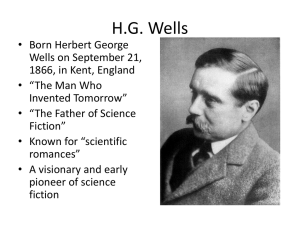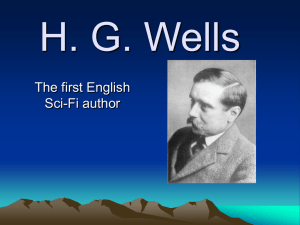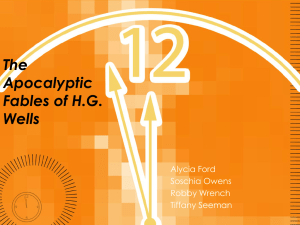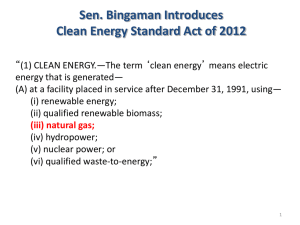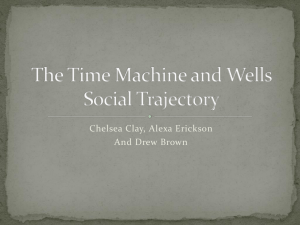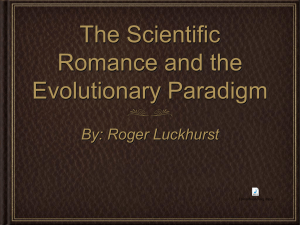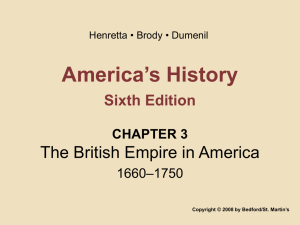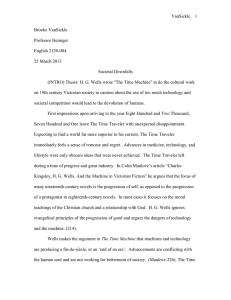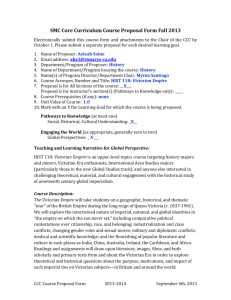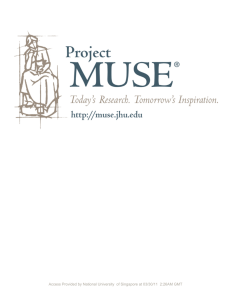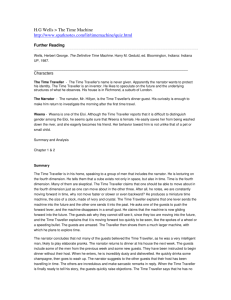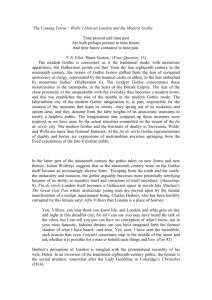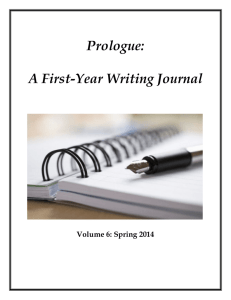The Empire of the Future: Imperialism and Modernism in H.G. Wells
advertisement
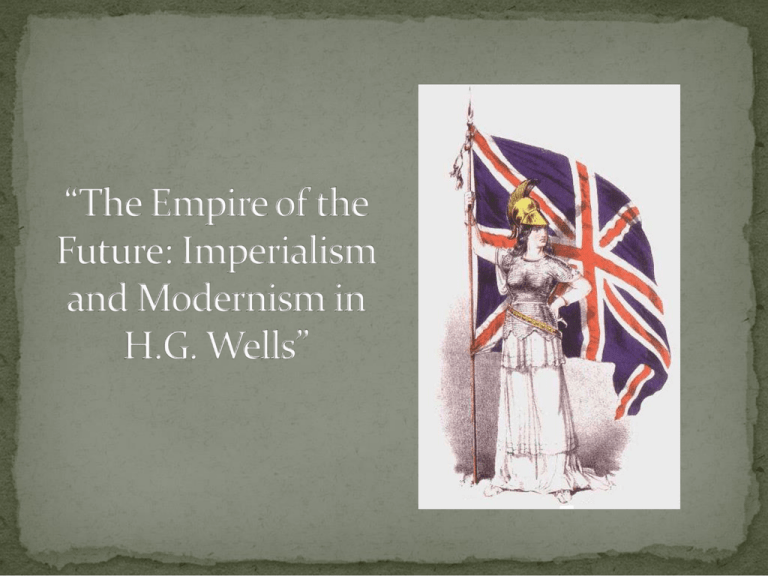
Late nineteenth century England controlled a sizeable portion of the world's land India Large swaths of Africa and China Australia Canada Some outright colonies Others held "dominion" status Queen Victoria is named the empress of India Motives for empire: sought wealth markets for manufactured goods sources for raw materials world power and influence Techniques of empire “ The Sword and the Torch” Sword = military might Torch = “the White Man’s burden” to civilize barbarians missionary societies flourished spreading Christianity in India, Asia, and Africa The British rationalized imperialist policies: Not by claiming that their acquisitions were in the military or economic interest of the country (which they were) The British rationalized imperialist policies: But by claiming it was their duty as the superior race to "civilize" primitive peoples who were incapable of governing themselves Used Darwin's theories to support his claims for racial superiority Social Darwinists interpreted survival of the fittest to mean that the strong are meant to rule the weak. Rudyard Kipling saw expansion of empire as moral responsibility and referred to this duty as "the white man's burden" Yep, the Jungle Book guy British Prime Minister Benjamin Disraeli Disraeli’s novel Sybil, in which he described the rich and poor as: “… two nations between whom there is no intercourse and no sympathy; who are ignorant of each other’s habits, thoughts and feelings, as if they were dwellers in different zones or inhabitants of different planets; who are formed by different breeding, are fed by different food, are ordered by different manners, and are not governed by the same laws”. (2) H.G. Wells The Time Machine uses ideas such as Disraeli's “Two Nations”: 1. the imperial frontier 2. the idea of time travel •Based on the imperialistic narratives of the mid1880's. The “Two Nations” theory came about when Disraeli looked at the difference between the rich and the poor in Victorian England H.G. Wells novels, the “Two Nations” theory is portrayed through two tribes the Eloi and the Morlocks The Eloi are peaceful, docile, and friendly Morlocks are primitive (ape-like), evil, and cannibalistic representing the good vs. evil Not all Tribes are created equal “South Sea Islanders” were the favored natives due to passivity of colonization “They spent all their time in playing gently, in bathing in the river, in making love in a half-playful manner fashion, in eating fruit and sleeping” (Wells qtd. In “Empire of the Future”) The Morlocks are portrayed as the evil tribe that needs to be conquered by man because it cannot be trusted The evil tribe was commonly attributed as being cannibalistic, such as the Morlocks In The Time Machine, Wells uses the ideas of Einstein and Minkowski to show there is a fourth dimension- Time “Time is only a kind of space” (qtd. In “Empire of the Future) Wells decides to travel into the future, showing the imperial frontier of the future In The Time Machine, Wells is bringing the Imperial Frontier to Britain In order to do this, Wells gives the future a tropical climate believing that the “Golden Age” life would come about due to the warm, tropical climate “The many orientalizing touches in The Time Machine combine to portray a Britain that has in effect gone native, that has succumbed to the seductive forces it hoped to subdue on the imperial frontier” (Cantor and Hufnagel 236) In the end of The Time Machine, Wells portrays the setting sun, showing that one day, the sun would finally set on the British Empire Time Machine: acts as an attack on Victorian social scene shortcomings denounce evils of Victorian industry criticize laissez-faire economics - Capitalism Wells brings about the imperial frontier using the imperialistic narrative style that was quite popular in that time period. Utilitarianism: it is a theory based on the idea that the rightness or wrongness of an action is determined by whether its consequences are conductive to general utility. The main thinker was Jeremy Bentham (Wrote about social happiness. He believed that individuals acted by self-interest). The utilitarians applied this idea for all the institutions, for everything. Opposed to the utilitarianism: Thomas Carlyle, he thought that intellect had limitations and couldn't explain everything and he turned to the humanism soul, a sort of religious belief was necessary to explain things.
